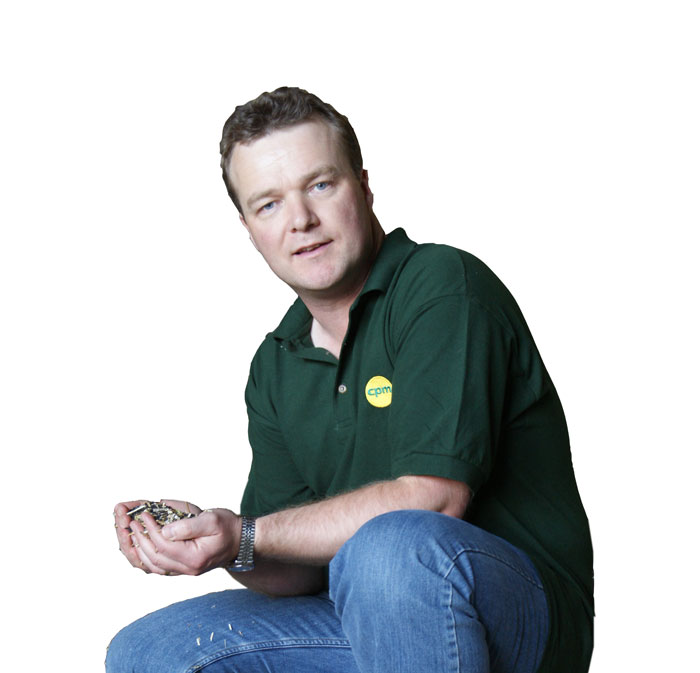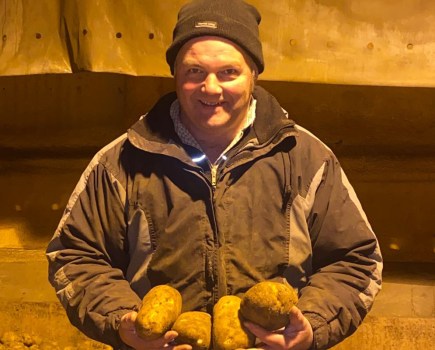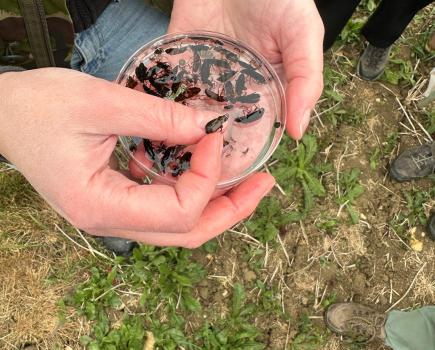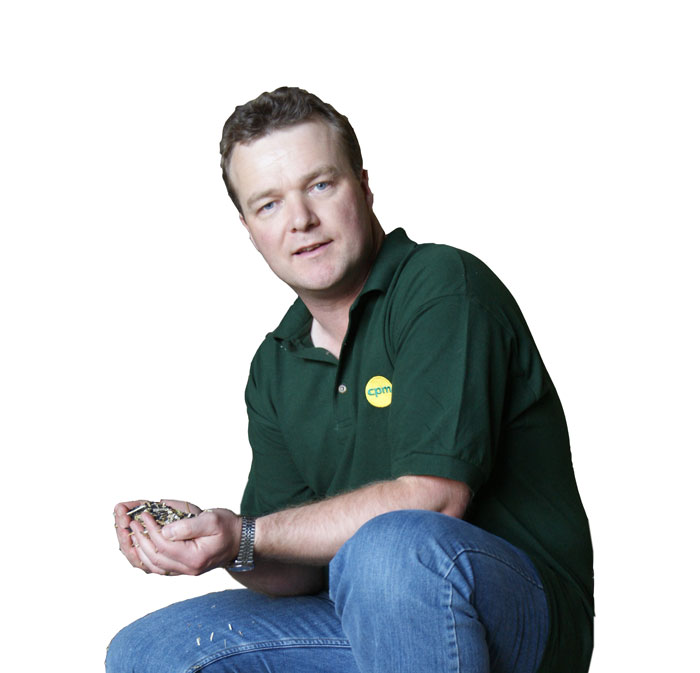 There are times when you turn on the radio or TV, or catch a clip on Twitter or YouTube, and you know you’ve just heard a true leader.
There are times when you turn on the radio or TV, or catch a clip on Twitter or YouTube, and you know you’ve just heard a true leader.
It happens sometimes at conferences, too – they speak and you can feel it resonate within you. What they say aligns with how you feel, and the way they say it – intonation, words, emphasis, presence – carries equal measure with your fervour.
If you haven’t already, play back some of the videos of the addresses made from the podium of this year’s Oxford Farming Conference and decide for yourself whether one of those makes a resonating moment.
For me, the quality of our leadership is so crucial this year as a result of what we decided to do as a nation less than two weeks ago. I feel like the person who has agreed to fall backwards, trusting there are people behind to catch me. Except it’s our whole industry – the entire country – that has put its trust in unseen arms, and what’s at stake is more than just a bruised backside.
That’s what I came to Oxford to find out, summed up by Cambs grower Tom Clarke, who asked Defra Secretary of State Theresa Villiers “have you got our back?” With trade negotiations set to start shortly, despite her reassurances, it soon became pretty clear no one in the room felt she has – a request for a show of hands dispelled any doubt there may have been on that front. And it’s no surprise – for me, her address was among the most forgettable Oxford has ever witnessed from a farming minister. It was a complete nul points on the resonation score.
Interesting, though, that the three-word slogan that won her party the election – Get Brexit Done – was adopted by NFU president Minette Batters, but changed to “Get Brexit Right”. What they headlined was a vision, said with passion and conviction, and punctuated with challenges laid down to both fellow farmers and the government. I could feel the resonation score surge.
What surfaced thereafter was a battle over imports. This focuses mainly on chlorine-washed chicken and hormone-treated beef, both banned in the EU, allowed in the US and considered by many trade experts as equivalent, in WTO terms, to the meat produced here. Theresa has pledged the ban will stay in place, enshrined in UK law, and that we’ll walk away from the negotiating table before allowing the US to persuade us otherwise – a Defra SoS couldn’t actually be more categoric.
But that’s not good enough for Minette – she wants it written into The Agriculture Bill, she wants a commission on food standards to scrutinise trade deals and she wants the government to lead on driving forward a new type of global trading system based on sustainable food. What’s more, there are 60 organisations, spanning environmental, animal welfare, farming and industry concerns (who very rarely unite on anything) who have joined her call in a letter sent recently to Prime Minister Boris Johnson. That’s leadership.
For combinable crop growers, however, the murmurs over meat may be a mere sideshow. No such legal protection is offered to cereals or oilseeds grown without neonicotinoid seed dressings. On feed markets, home-grown commodities compete at equivalence with imported GM crops. I don’t think chlorine-washed chicken or hormone-treated beef have a hope in Hell of reaching our shores. But US negotiators will make darn sure the UK pays a heavy penalty for keeping its political pride intact, and there’ll be something else in the ag package that we may find hard to swallow.
My money’s on GM and gene-editing. I’m not saying our markets will suddenly be flooded with GM produce, nor that we’ll be forced overnight to plant wall-to-wall US-bred GM corn and soya. I’m not even saying that what’ll come won’t be just as beneficial to UK growers as to the US interests that’ll be behind it – this technology has great potential and we’ve much to learn about it that maybe our friends across the pond can help with. But to negotiate something that’ll offer UK arable farmers real opportunity, that’ll take serious leadership – by God, I hope someone’s got our back.
Climate Change Champions
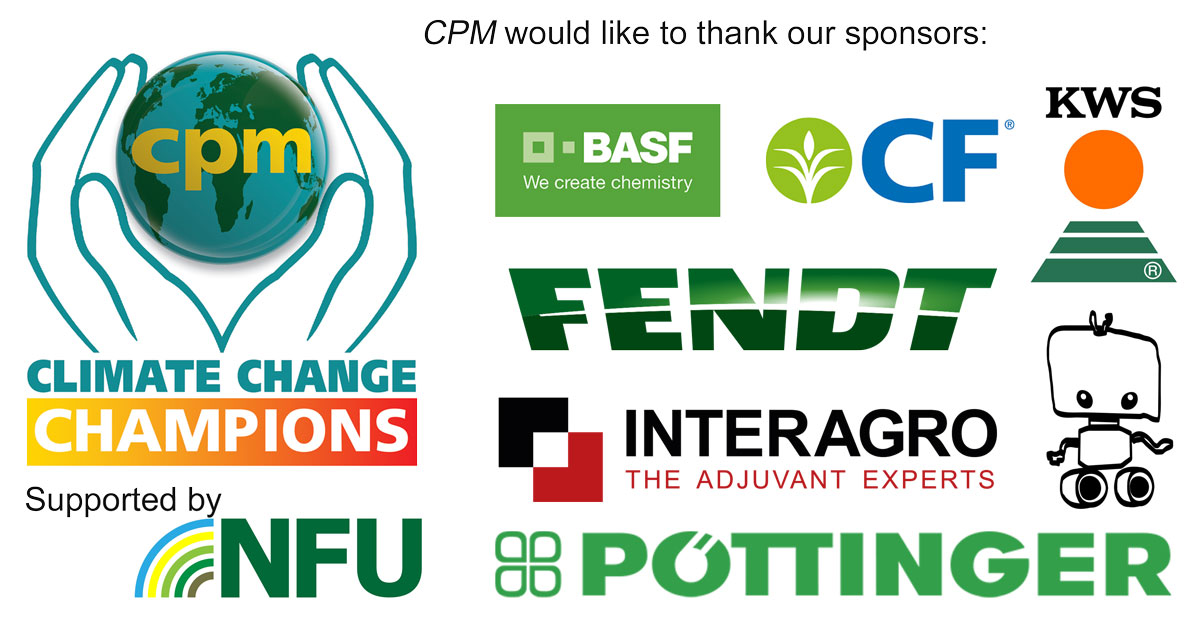
Carrying on with the leadership theme, CPM has published a feature on the first of our Climate Change Champions, a new initiative we’re running throughout 2020 with the support of NFU, and kindly sponsored by leading supply trade companies. Have a read of Bucks grower Clive Pullin’s inspirational farming system, and thank you to all the CPM readers who put themselves forward. We think there’s actually a Climate Change Champion in every reader, and with a little innovative thinking, meeting the NFU’s goal of net zero emissions by 2040 will be a breeze. Keep reading to find out how.
Tom Allen-Stevens has a 170ha arable farm in Oxon, which quite often has his back, when slipping over in currently horrendously muddy fields. @tomallenstevens

